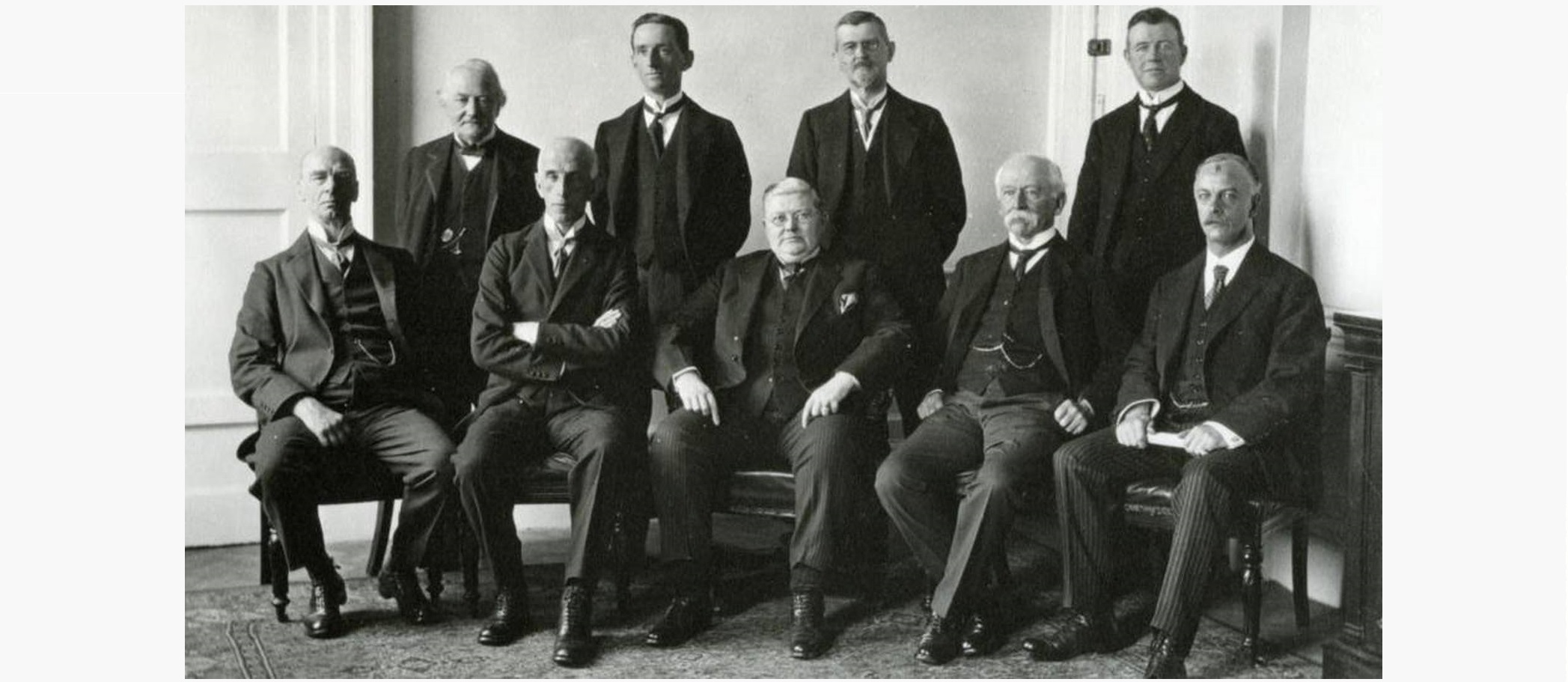In January 1923 a Judiciary Committee, chaired by former Lord Chancellor Lord Glenavy, was appointed to advise the Executive Council (Cabinet) of the Free State on the establishment of a new court system. In a letter to its members, WT Cosgrave wrote,“there is nothing more prized among our newly won liberties than the liberty to construct a system of judiciary and an administration of law and justice according to the dictates of our own needs and after a pattern of our own designing.”
The committee produced a report in May 1923, with detailed recommendations for the establishment and operation of the District, Circuit, High and Supreme Courts. The Courts of Justice Bill 1923 was published in July and after much debate, the Courts of Justice Act 1924 was signed into law and commenced in the summer of 1924.
District Courts replaced the court of petty sessions and the Justice of the Peace. The Justices of the District Court were professional judges and had jurisdiction over minor civil and criminal matters. The Circuit Court had jurisdiction in more serious civil and criminal matters. It had appellate jurisdiction (the power of a higher court to review the decisions of lower courts) over District Court cases. On the criminal side, the most serious offences, such as murder, were reserved to the High Court. A Court of Criminal Appeal to hear appeals from the Circuit and High Courts was also established. Provision was made for a further right of appeal to the Supreme Court on a point of law of exceptional public importance. The Supreme Court was created as the final court of appeal, to be presided over by the Chief Justice.
The transition to the new court system was complicated by the fact that two court systems had been in operation since 1920: the ordinary court system and the 'Dáil courts'. The latter comprised the Parish Court, which dealt with the most minor civil and criminal matters, the District Court, which dealt with more serious civil and criminal matters, a Circuit Court composed of four circuits, and a Supreme Court, operating as both a court of first instance and an appellate court. While successfully suppressed by the British in Dublin, these courts operated with some success elsewhere. Following the signing of the Treaty, the Dáil wound up these courts.
The Act is one of the most significant pieces of legislation passed in the Free State. It established the basic structure of our courts system, which has endured for a century, with only the addition the Court of Appeal in 2014.


